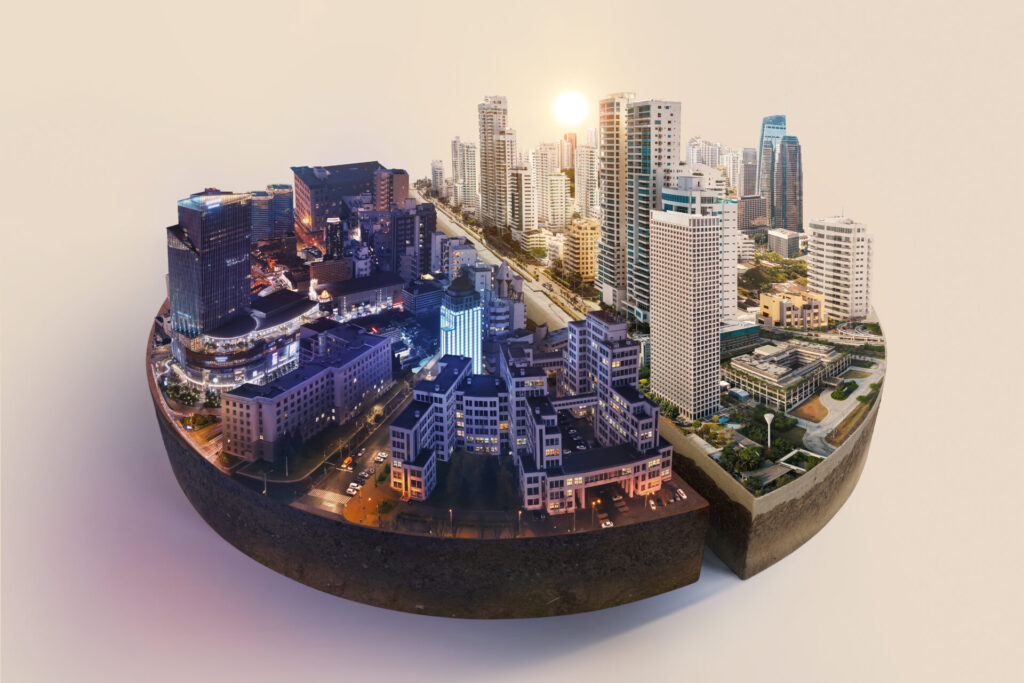Dubai government and economy – we answer 4 questions
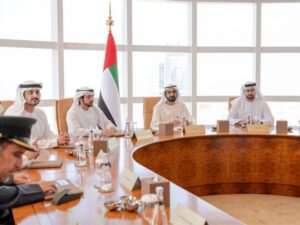
Dubai government – who decides which laws?
The Maktum family has ruled the Emirate of Dubai since 1833. It has only been part of the overall structure of the United Arab Emirates (UAE), which follows a federal system, since 1971.
Head of state
Sheikh Mohammed bin Rashid Al Maktoum has been the head of Dubai since 2006. He is also Prime Minister and Vice President of the United Arab Emirates. Sheikh Mohammed enjoys international acceptance, which is reflected in Dubai’s rapid development. At the center of his work is the opening of the Emirates for innovative future projects, a guarantee for social prosperity beyond the export of oil.
Executive
Sheikh Hamdan bin Mohammed bin Rashid Al Maktoum is currently the Crown Prince of Dubai. He is also the Chairman of Dubai’s Executive Council and plays a key role in the implementation of the emirate’s political agenda and development. He was part of the welcoming committee at the 28th UN Climate Change Conference in Dubai (November 2023) with around 70,000 participants from 197 member states.
The Executive Council, chaired by the Crown Prince, is the main body responsible for implementing government policy. It consists of various ministries and departments that are responsible for different aspects of governance.
Legislation
The Dubai Legislative Council (FNC), which consists of 40 deputies, is the main legislative body at emirate level. It plays an important role in the drafting and passing of laws on local issues. Although the FNC is authorized to review laws and regulations, as a political body it only acts in an advisory capacity. In practice, legislative power lies with the highest federal body, the “Supreme Council”, which is made up of the seven emirates.
Judicial system
The judicial system in Dubai comprises civil and criminal courts. The courts work on the basis of Islamic law (Sharia) and decide on matters relating to family, commercial and criminal law.
Local administration
The district administrations in Dubai are divided into different districts, and these in turn have local municipal administrations. They are responsible for the provision of services at local level, such as infrastructure maintenance, health services and education.
Economic authorities
Dubai Economic Development (DED) plays a central role in shaping Dubai’s economic policy. It promotes economic growth, attracts investors and aims to drive forward the diversification of the economy.
Dubai International Financial Centre (DIFC) plays a key role in the development of financial services in Dubai’s financial and economic center. There are separate courts for financial and commercial disputes.
The Dubai government places great emphasis on innovation, sustainable development and the promotion of key industries such as tourism, trade and technology. The governance is part of a comprehensive vision for the future of Dubai, which aims to position the city as a global center for business, culture and quality of life.
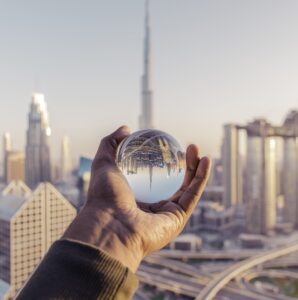
Does Dubai have a domestic market?
Dubai is part of the United Arab Emirates (UAE), a federal state consisting of seven emirates. Within the UAE, there is a common domestic market that is regulated by various institutions and laws. Here are some aspects that affect the domestic market in the UAE, which includes Dubai:
Free trade zones
Dubai has several free trade zones that offer special economic incentives. These zones allow foreign companies to own property and benefit from tax advantages. Among the best-known companies are the Dubai International Financial Center (DIFC) and Jebel Ali Free Zone.
Common currency
The UAE has a common currency, the UAE dirham (AED). This facilitates trade and economic integration between the emirates, including Dubai.
Free trade
There are no internal customs barriers between the Emirates. Trade between the emirates is largely free, which facilitates the movement of goods.
Legal framework
The UAE’s legal framework promotes economic cooperation. There are laws and regulations governing trade and business activities, as well as arbitration tribunals for the settlement of commercial disputes.
Economic diversity
Dubai has actively sought to diversify its economy. In addition to the traditional oil and gas sector, the city has made significant progress in tourism, aviation, real estate, finance and technology. This diversification contributes to the stability and development of the internal market.
Investment promotion
The Dubai government has taken measures to attract foreign investors and facilitate the establishment of companies. This helps to ensure that the domestic market remains dynamic and attractive for both national and international companies.
Infrastructural integration
The emirates are connected by a well-developed road and rail network, which facilitates trade and the mobility of goods.
It is important to note that although there is a common internal market, the UAE allows each emirate to have individual jurisdictions. The specific economic initiatives and priorities may vary depending on the emirate. In Dubai, efforts towards economic diversification, innovation and global integration are visible in the business environment.
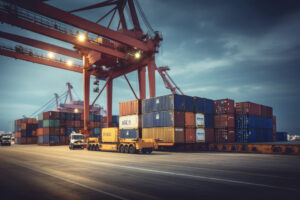
What goods does Dubai import?
Dubai is a major trading hub with a highly diversified import portfolio. The city imports a wide range of goods to meet the needs of its growing population and thriving business sector. Here are some main categories of goods that Dubai imports:
Crude oil and petroleum products
Dubai is part of the United Arab Emirates (UAE), which is one of the largest oil producers in the world. Although Dubai itself is no longer as dependent on oil revenues as in the past, crude oil and its derivatives remain important import goods.
Electronics and electrical appliances
Dubai imports a considerable amount of electronics and electrical appliances, including cell phones, computers, household appliances and consumer electronics. These goods are imported both for the local market and for re-export to other regions.
Vehicles and vehicle parts
Dubai is known for its passion for luxury cars. Many vehicles and vehicle parts are therefore imported. This includes both standard vehicles and luxury brands.
Food and beverages
Due to its limited agricultural production, Dubai imports a considerable amount of food and beverages. This includes fresh produce, processed foods, meat, fish, dairy products and much more.
Jewelry and precious metals
Dubai is an important trading center for jewelry and precious metals. The city is particularly well known for its gold and jewelry markets, which is why gold and diamonds are among the most important imported goods.
Textiles and clothing
Textiles and clothing are imported in large quantities to meet the needs of the growing population and the flourishing fashion industry.
Building and construction materials
With the impressive construction boom in Dubai, immense quantities of building materials, including steel, cement and timber, are needed to meet the demand for real estate and infrastructure projects.
Medicines and health products
The healthcare sector in Dubai is dependent on medicines and medical products, most of which are imported.
Luxury goods
Dubai is known for luxury and exclusivity. As a result, many luxury goods such as designer clothes, shoes, handbags, watches and jewelry are imported.
It should be emphasized that Dubai’s imports are changing due to efforts to diversify the economy and promote non-oil-based sectors. The city is striving to offer a wider range of goods and services and to position itself as a commercial hub for the region.
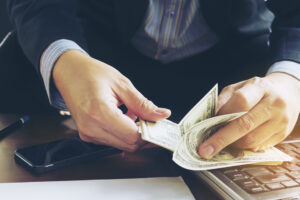
Is Dubai rich?
Yes, Dubai is considered one of the richest cities in the world. The city’s prosperity is mainly based on the oil industry, with the United Arab Emirates (UAE) being one of the major oil producers. However, Dubai has actively sought to diversify its economy in recent years in order to reduce its dependence on oil. Some factors that contribute to Dubai’s prosperity are:
Economic diversification
Dubai has successfully invested in various sectors of the economy, including tourism, real estate, aviation, finance, trade and technology. This has helped to make the economy more resilient to fluctuations on the oil market.
Commercial and financial center
Dubai is an important commercial and financial center. It is based on an ideal geographical location between the continents of Europe, Asia and Africa. The port of Jebel Ali is one of the largest container ports in the world and Dubai International Financial Centre (DIFC) is a major financial center.
Tourism
Dubai has become a popular tourist destination, resulting in a significant increase in the number of tourists. In addition to luxury accommodation, shopping and entertainment, the city also offers architectural landmarks such as the Burj Khalifa and the artificial islands.
Real estate development
Dubai is known for its spectacular real estate development. The city boasts impressive skyscrapers, exclusive residential complexes and innovative construction projects that attract international investors.
No income tax
A lure for expatriates and international companies is Dubai’s waiver of income tax. This has motivated professionals and companies that contribute to economic development to come to Dubai.
Innovation and technology
Dubai has invested heavily in innovation and technology to position itself as a leading center for future technologies. Projects such as the “Smart Dubai Initiative” and the promotion of start-ups contribute to this.
Despite Dubai’s prosperity, there are social and economic challenges, particularly with regard to working conditions and migration issues. The need to further diversify the economy in order to ensure long-term stability must not be overlooked.
Your Sascha

Follow us on ines_loves_dubai & CusTours_Dubai to learn more about Dubai
